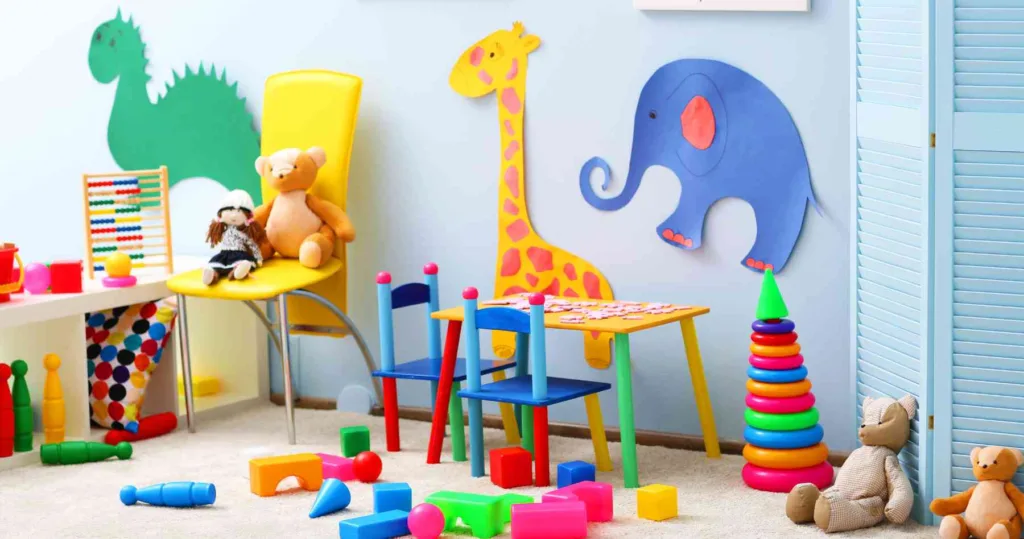Exploring the Developmental Advantages of Playtime for Preschoolers
Playtime for preschoolers is an invaluable part of helping them reach their full potential. This article will explore the developmental advantages of playtime for preschoolers, focusing on how it can support and promote their cognitive, social, emotional, and physical growth.
When engaging in play-based activities as suggested by experts, preschoolers are more likely to experience cognitive development. Examples of play-based activities that can aid with cognitive development include building blocks and puzzles, which help improve hand-eye coordination and problem-solving abilities. Pretend play is also important for cognitive development, as it allows children to understand the perspectives of others and to think creatively.

The Developmental Advantages of Playtime for Preschoolers
Playtime is a vital part of childhood, especially for preschoolers. Children explore their world, express themselves, and learn important skills through play. But what are the specific developmental advantages of playtime for preschoolers? In this article, we’ll delve deeper into the ways play helps young children to grow and learn. Playtime can have a profound impact on a child’s development and can be one of the most significant ways to support and encourage cognitive, social, emotional and physical growth.
Cognitive Development through Play
One of the most obvious benefits of play is that it allows children to use their imagination, solve problems, and learn new concepts. For instance, building blocks can teach preschoolers about shapes, sizes, and cause and effect. Through playing with puzzles, they learn about matching and problem-solving. Additionally, games that involve counting and matching numbers can help them develop their numerical skills. Play also supports language development, as children learn new words and how to use them in context through playful interactions with others. Furthermore, play allows children to make connections between different pieces of information, which is a key component of learning and understanding.
Play can also help children develop their memory and attention skills. Games like memory matching, where children have to remember where certain objects are located, and puzzles, where children have to pay attention to specific details, can be a fun way to improve these skills. As children’s brains are still developing and absorbing information at an incredible rate, it’s important to provide them with a wide variety of age-appropriate and challenging activities that will help them to continue to build these cognitive skills.
In addition to cognitive development, playtime can also support the social, emotional, and physical development of preschoolers. During play-based activities, children learn to interact with others and to interact with the environment. This can help them develop their communication and social skills, as well as their ability to recognize and manage emotions. Playtime is also associated with physical development, as it involves physical activities such as running and jumping, which help to improve motor skills and build strength.
ExcellentBased on 28 reviews Trustindex verifies that the original source of the review is Google.
Trustindex verifies that the original source of the review is Google. Pieter Kotze2022-03-11Great pre-primary school in Table View, it has been there for many years and we are now on the verge of sending the 2nd generation there and although they have been around for years, the staff are current and up to date with the latest in childcare and early childhood education, peace of mind for sure...Trustindex verifies that the original source of the review is Google.
Pieter Kotze2022-03-11Great pre-primary school in Table View, it has been there for many years and we are now on the verge of sending the 2nd generation there and although they have been around for years, the staff are current and up to date with the latest in childcare and early childhood education, peace of mind for sure...Trustindex verifies that the original source of the review is Google. Gareth Bolt2021-08-20Jackie,Maude and Applebee team look after our little boy so wonderfully!Trustindex verifies that the original source of the review is Google.
Gareth Bolt2021-08-20Jackie,Maude and Applebee team look after our little boy so wonderfully!Trustindex verifies that the original source of the review is Google. Shakurah Hackley2021-08-20My son loves his teachers. They care for our kids and go the extra mile.Trustindex verifies that the original source of the review is Google.
Shakurah Hackley2021-08-20My son loves his teachers. They care for our kids and go the extra mile.Trustindex verifies that the original source of the review is Google. Nolu Mandindi2021-08-19My daughter been a student since 2019, her brother joined her in 2021, we couldn't be happier with the professionalism shown by the staff. The constant feedback from teachers on progress is on point.
Nolu Mandindi2021-08-19My daughter been a student since 2019, her brother joined her in 2021, we couldn't be happier with the professionalism shown by the staff. The constant feedback from teachers on progress is on point.
Social and Emotional Development through Play
Play is not only beneficial for children’s cognitive development but also their social and emotional development. Children learn to navigate social situations and understand their own emotions through play. For instance, playing dress-up can help preschoolers learn about different roles and emotions, and playing with friends teaches them about cooperation and communication. When children play, they also learn about empathy, understanding other perspectives, and resolving conflicts. Playtime also allows children to regulate their own emotions as they engage in activities that interest them, and it allows them to experience a range of emotions without the pressure of real-world consequences.
Playing with other children also helps children learn to take turns, share and collaborate. These skills are essential for children to develop in order to form strong relationships with others and function effectively in a group setting. Play also allows children to practice and test out new social skills in a safe and nurturing environment.
Physical Development through Play
Playtime is not only important for children’s minds, but also for their physical development. Physical activity is necessary for gross motor skill development, and children learn to coordinate their movements through play. Playing games such as catch or hide-and-seek not only encourages children to run and jump but also improves their balance and coordination. Children also learn about spatial awareness and control of their bodies through climbing, balancing, and other physical activities. Physical play helps children to gain confidence in their abilities and a sense of control over their bodies.
Outdoor play is also extremely important for children’s physical development, as it allows them to run, jump, climb, and explore in a natural environment. Fresh air, sunshine, and exposure to nature are all essential for children’s overall health and well-being.
To foster the benefits of playtime for preschoolers, it is important to provide a safe and stimulating environment. Caregivers and parents can also play an important role in this, as they can support and facilitate playtime activities. These activities can range from simple activities such as singing or looking at books, to more complex activities such as outdoor exploration or board games.
Creativity Development through Play
Playtime also encourages creativity in children. By experimenting with different materials, colors, and shapes during play, preschoolers explore their creative side and gain a sense of accomplishment and pride in their creations. Through drawing, painting, and sculpting, children learn to express themselves and develop their imagination.
Creative play also allows children to use their imagination, which is essential for their overall development. Children who have a strong imagination are more likely to be successful in school, as they can think critically and come up with innovative solutions to problems. They are also more likely to be successful in their chosen careers as they can think outside the box and come up with new ideas.
Play is a child’s primary means of expressing themselves and understanding the world around them. Playtime should be a fun, nurturing, and stimulating experience that allows children to explore, experiment, and learn at their own pace. It should encourage children to use their imagination, creativity, and critical thinking skills.
In conclusion, playtime is crucial for preschoolers’ overall growth and development. The benefits of play, from building cognitive and physical skills to developing social and emotional intelligence, are endless. As parents and educators, it’s our job to provide children with safe, nurturing and stimulating play environments that will encourage their development and growth. Encourage your preschooler to play with a variety of toys and materials, and watch them develop into confident and capable individuals. Play is not just fun and games but essential to a child’s development and overall well-being.
Get In touch
Leave us a message
